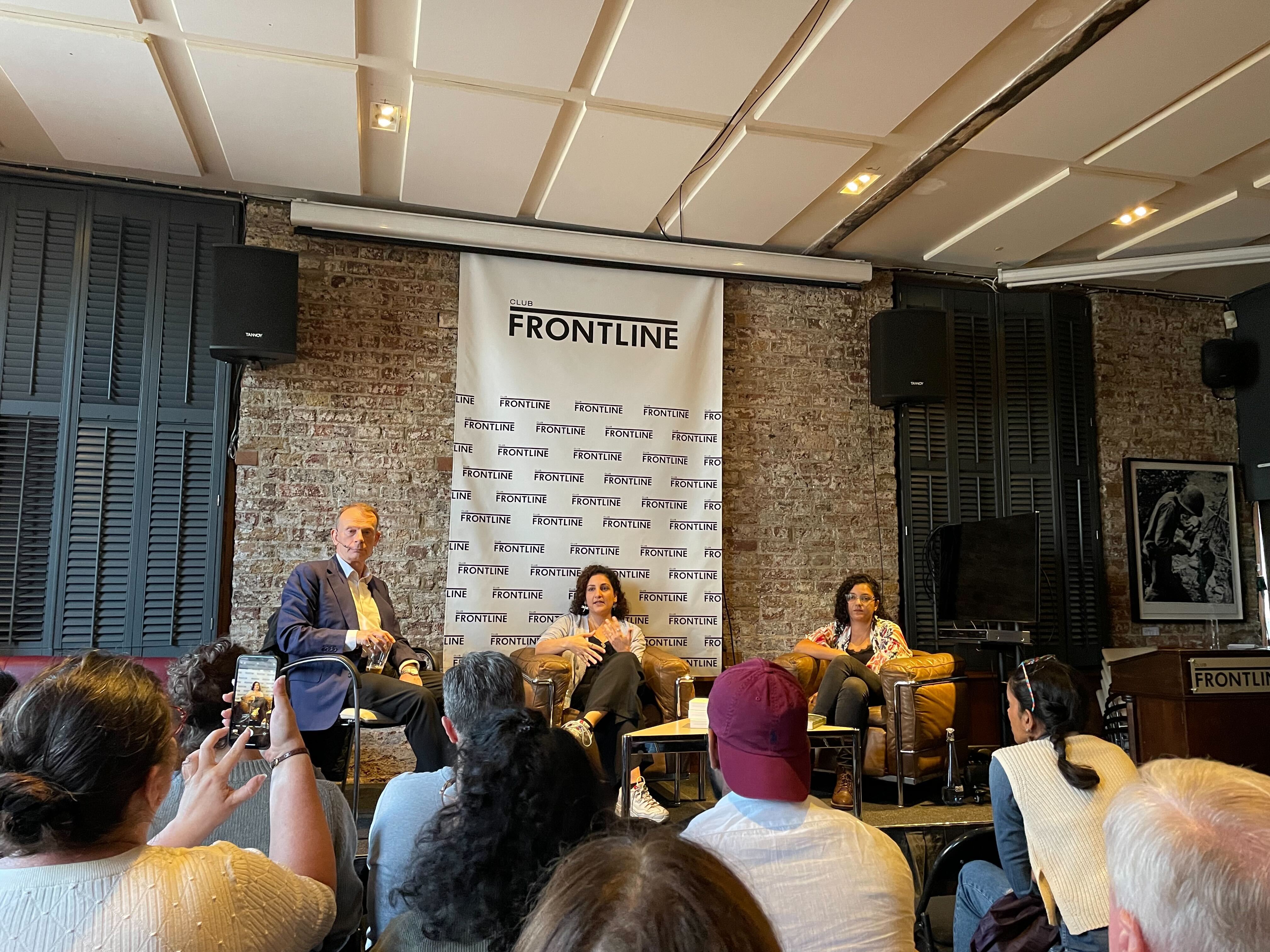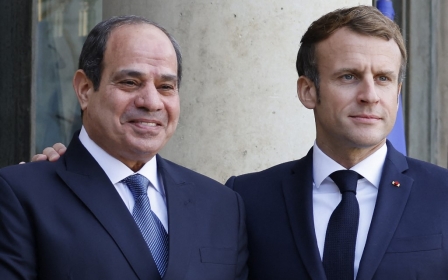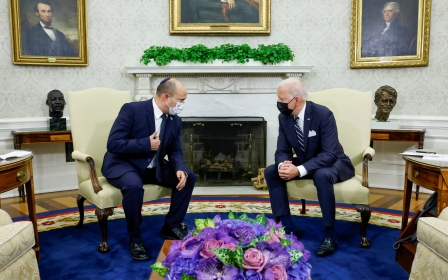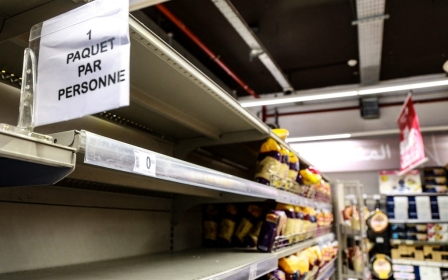Alaa Abd el-Fattah 'would accept Egyptian citizenship being revoked for freedom'
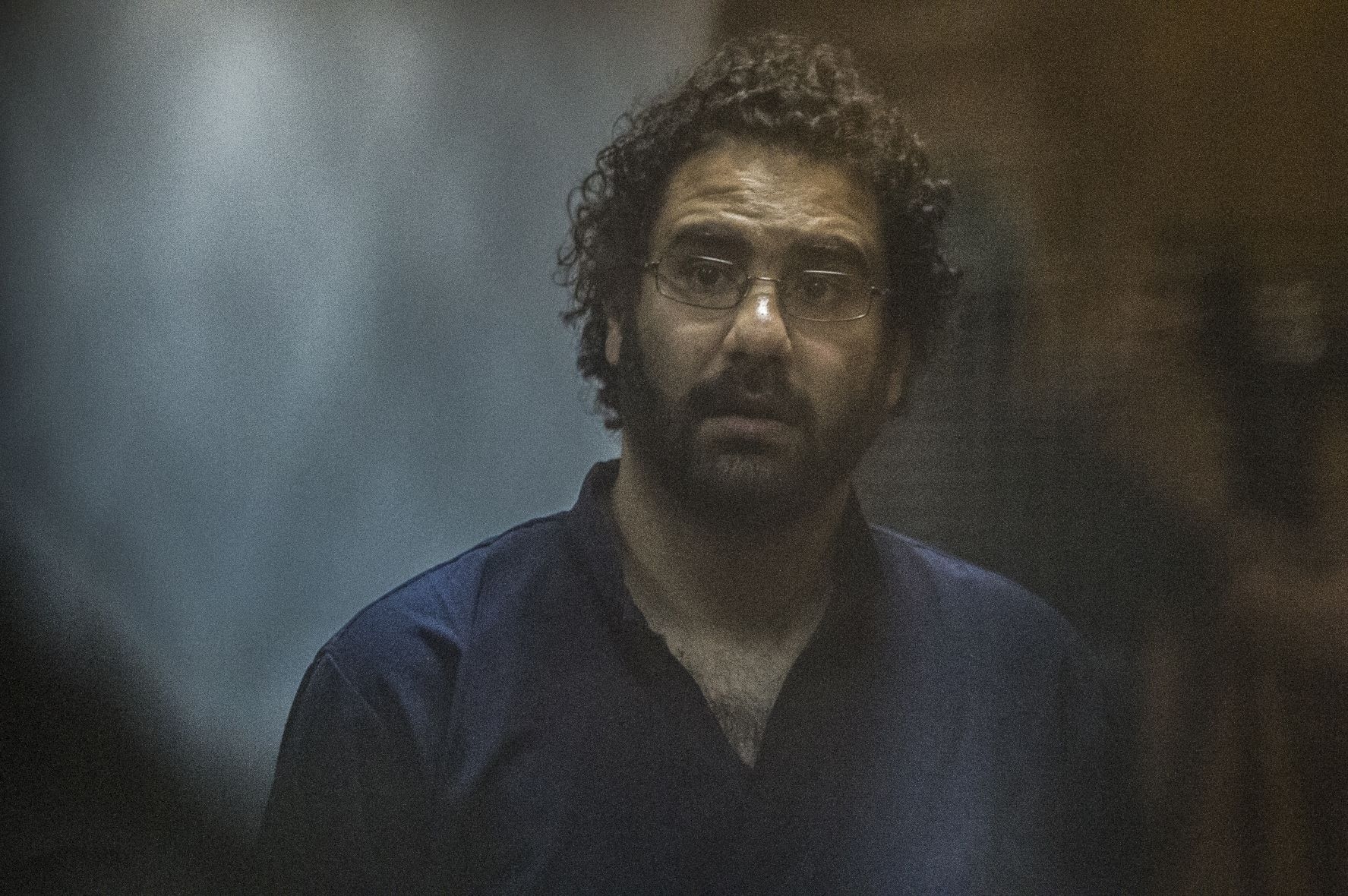
Imprisoned Egyptian-British activist Alaa Abd el-Fattah is willing to accept revocation of Egyptian citizenship if dual nationality is an obstacle for his release, his family said on Tuesday.
In recent years, a handful of the estimated 65,000 political prisoners in Egypt have been freed by President Abdel Fatteh el-Sisi's government if they are dual nationals and relinquish their Egyptian citizenship.
'If Britain had been doing enough, Alaa would be here with us. Britain is capable of resolving this issue'
- Sanaa Seif, Alaa Abd el-Fattah's sister
Abd el-Fattah was granted UK citizenship in April through his mother Laila Soueif, who is also a British citizen.
Speaking at an event at the Frontline Club in London, Abd el-Fattah's sisters Mona and Sanaa Seif said that, although they are not advocating for that solution, their brother would sacrifice the citizenship of his homeland if it meant ending his years-long ordeal.
"There’s no hesitancy about it. There’s no use holding onto a citizenship that means you stay buried in a prison for ever and ever," said Mona.
New MEE newsletter: Jerusalem Dispatch
Sign up to get the latest insights and analysis on Israel-Palestine, alongside Turkey Unpacked and other MEE newsletters
The pro-democracy activist, who was an icon of the 2011 Egyptian revolution, has spent eight out of the last 10 years in jail on a range of charges.
While in jail, in December 2021, he was sentenced to five years in prison by an emergency state security court on charges of spreading “false news", in a trial widely condemned by human rights defenders. The evidence used against him was a retweet.
He began a hunger strike on 2 April and his family is increasingly worried about his deteriorating condition.
Earlier this year, Palestinian-Egyptian activist Ramy Shaath was forced to give up his citizenship in return for release from detention, before travelling to France to join his wife.
Abd el-Fattah's sisters said so far there had been no such deal suggested to them.
"Once they feel pressured enough, this will be the offer probably on the table, but for now this has not even been offered," said Sanaa, adding however, that they "cleared" with Alaa that this would be accepted if put forward.
"We’ve made it very clear with the UK government when we talk to the ambassador that if the dual citizenship is a hurdle in saving Alaa then he’ll definitely let go of the Egyptian citizenship," Mona said.
In previous comments to MEE, Amnesty International denounced the requirement to renounce Egyptian citizenship as "arbitrary" and "a clear violation of international law."
'Inhuman' conditions
Abd el-Fattah's family had hoped that his being granted British citizenship would lead to increased pressure on the Egyptian government, but so far there has been little movement.
Last week, a group of UK MPs sent a letter to British Foreign Secretary Liz Truss calling on her to do more to help the Egyptian activist.
The letter said he was being held in "inhuman" conditions and had for two and a half years been deprived of "reading materials, exercise, sunlight or bedding".
It called on the government to secure consular access to him, transfer him out of maximum security prison and press for his release.
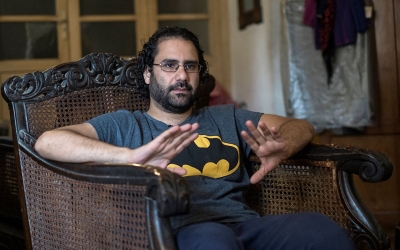
"It will not be to anyone's advantage if the life of a prominent, secular, pro-democracy figure were to be lost," it added.
Concerns were raised last year that Abd el-Fattah's conditions were such that he had been put in a "suicidal" state.
During his incarceration in Tora Prison, he was denied reading materials, a bed or even a clock to tell the passing of time.
On Thursday he was transferred to the Wadi El Natrun prison complex north of Cairo, where his conditions have reportedly improved, including having access to a bed.
His sisters said there is also now a camera in his room, which meant his health could be monitored in relation to the hunger strike.
The lack of access to consular visits and the constant changing of prisons has taken its toll on him, however.
"We feel that Alaa has decided that he wants an end to all of this. And he wants it to be decided by him. He has decided to take this hunger strike till the end," said Mona.
His sisters said that the move to the new prison was, in part, a result of the attention being drawn to his case by campaigners and the raising of his profile.
Nevertheless, they said the UK needed to do more.
"If Britain had been doing enough, Alaa would be here with us. Britain is capable of resolving this issue," said Sanaa.
She added that British negotiators needed to better understand who they were dealing with, including a president who had a "personal issue" with their family.
"Are they aware that the other party is unreasonable?" she said.
Middle East Eye delivers independent and unrivalled coverage and analysis of the Middle East, North Africa and beyond. To learn more about republishing this content and the associated fees, please fill out this form. More about MEE can be found here.


